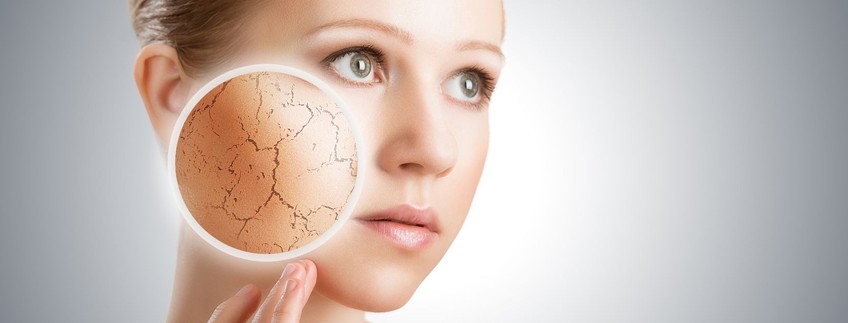
Introduction
Did you know that the skin is the biggest organ of the human body? Your skin acts as a barrier between your body and the external environment, keeping out harmful microorganisms, helps you experience different sensations and regulate body temperature. For some people however, dry skin compromises this barrier, causing itching and redness, and leaving them susceptible to external environmental irritants.
Signs & Symptoms
- Itching
- Seeing scaling, fine lines or cracks
- Feeling that the skin is tight
- Dry lips
When to Seek Medical Attention
Many people suffer from a certain degree of dry skin. However, please see a doctor if you notice that:
- Your skin is suddenly dry.
- Your dry skin is severe, and causes you pain.
- Your skin is cracked and bleeding from the dryness.
- You have any signs of infection, such as pain, warmth, swelling and discharge with pus.
- Your skin is overly scaly and thick, with other symptoms such as silvery plaques and blisters.
Causes
- Genetics
- Old age
- Weather changes like cold weather, low humidity and excessive sun exposure
- Chemicals, such as harsh bath products, chlorine water from a swimming pool etc.
- Malnutrition
- Skin conditions such as atopic dermatitis, psoriasis
- Underlying conditions such as diabetes, hypothyroidism
Lifestyle modifications
Harsh, drying soaps can be damaging to your skin. Choose bath products that are used for sensitive skin, with no soap, perfume or colourants. Bath substitutes such as emulsifying ointments or aqueous creams can be considered as they do not strip your skin of moisture.
Avoid overly hot showers as this can be drying on the skin. Limit your baths to 5-10 minutes each time.
Moisturisers applied on damp skin and help to seal in moisture. Apply your moisturiser about 3 minutes after patting your skin dry gently. Some examples of moisturisers are paraffin and urea. Paraffin helps to smoothen the skin and lock in moisture, while urea is a humectant which helps to pull moisture into the top layer of your skin. Remember to moisturise your hands after washing them too!
If your skin is itchy, products like pine tar and colloidal oatmeal can help to soothe it.
Treatments options
Most dry skin sufferers are able to control their symptoms merely by modifying their lifestyle.
However, if necessary, hydrocortisone cream can be used. Hydrocortisone is a topical steroid that helps to alleviate itch and bring down swelling. A thin layer can be used on unbroken skin about twice a day, for no more than a week without seeking further medical advice.




